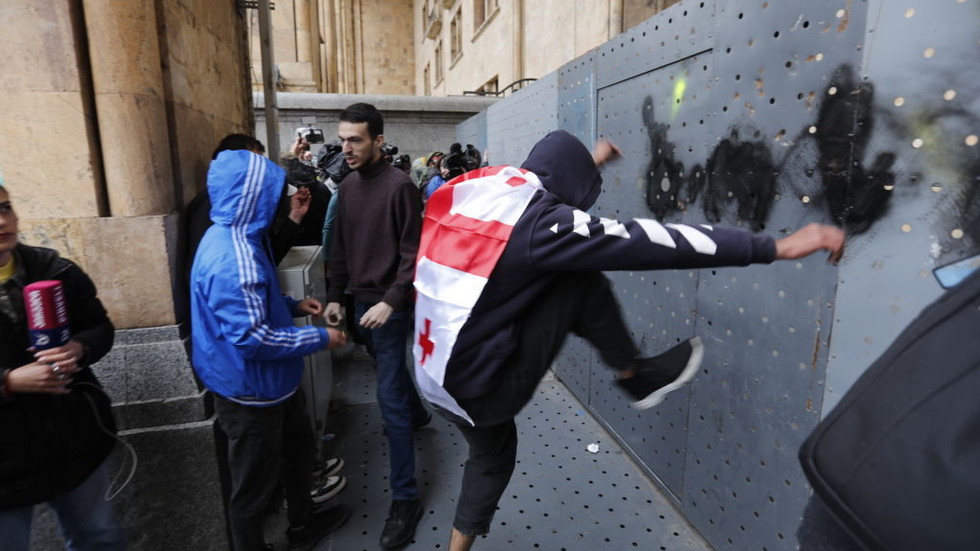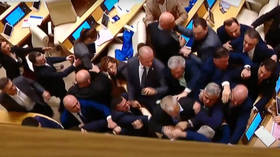
Georgia might be punished for passing the “foreign agents” law

Protesters attack the barricade around the Georgian Parliament in Tbilisi, May 14, 2024. © Mirian Meladze/Anadolu via Getty Images
Members of the Georgian government could face sanctions for “undermining democracy,” a senior US diplomat said on Tuesday, after the parliament in Tbilisi approved a foreign agents law that Washington has opposed.
Assistant Secretary of State for European and Eurasian Affairs James O’Brien arrived in Tbilisi for meetings with both Prime Minister Irakli Kobakhidze and members of the opposition, only to find that the Georgian legislature passed the Law on Transparency of Foreign Influence.
“I was very clear that there would be consequences if the law were implemented as it now stands,” O’Brien told reporters on Tuesday evening. “[Kobakhidze] has referred to this as coercion, but it’s not. Georgia is attempting to join the EU and NATO. Those organizations have certain standards and certain referees that say what the rules are, and we simply want Georgia to continue to match those standards rather than to deviate,” he added.
If the law goes forward, “and there’s undermining of democracy here and there’s violence against peaceful protesters – peaceful protesters! – then we will see restrictions coming from the US,” O’Brien added, noting that they would be financial or travel sanctions “on the individuals responsible for those actions and their families.”
The US diplomat said he does not want this to happen, but for Georgia “to have a continued peaceful path toward the EU and NATO with a robust democracy.”

Read more
Georgia’s “foreign agent” law would require non-profit organizations, media outlets and individuals with more than 20% foreign funding to register as entities “promoting the interests of a foreign power” and disclose their income and donors or face a fine of up to $9,500. It does not provide for criminal prosecutions, unlike the Foreign Agents Registration Act (FARA) enacted by the US in the 1930s.
This is Tbilisi’s second attempt to pass the law. Last spring, the government backed down after violent demonstrations outside the parliament and threats from the US and the EU. Opposition activists have been protesting against what they dubbed the “Russian law” again, clashing with police in downtown Tbilisi on several occasions this month. During Tuesday’s vote, several dozen lawmakers got into a fistfight on the parliament floor as well.
The falling out between the US and Georgia has caught the attention of Russian Foreign Ministry spokeswoman Maria Zakharova, who sought to clarify what O’Brien may have meant.
“Is the problem that the Georgian law is much milder than the American law?” she posted on her Telegram account. “Why should Georgia or any other country conform to other people’s values? Don’t the ‘values’ of the US include non-interference in the internal affairs of other countries?”



